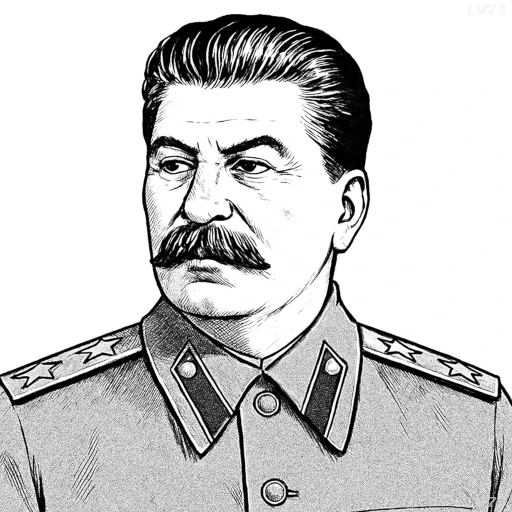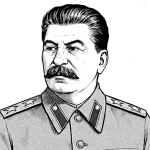“Print is the sharpest and the strongest weapon of our party.”

- December 18, 1878 – March 5, 1953
- Born in Georgia
- Politician
table of contents
Quote
“Print is the sharpest and the strongest weapon of our party.”
Explanation
This quote emphasizes the central role of propaganda and media in consolidating power and shaping public perception. For Stalin and the Soviet regime, control over information was crucial to maintaining authority. By describing print—specifically newspapers, pamphlets, and other printed materials—as the “sharpest” and “strongest” weapon, Stalin is highlighting its potential to influence and manipulate the masses. Printed materials were the primary means of disseminating state-approved ideologies, shaping public opinion, and suppressing dissent. Under Stalin’s leadership, the Soviet state used print media not only as a tool of education but also as a means of repression and control over the narrative surrounding political events and government actions.
The Soviet government monopolized media outlets and controlled all forms of written communication. It used newspapers, books, and posters to spread state propaganda, glorify Stalin’s leadership, and justify the government’s actions, even as they led to widespread suffering. Print was used to justify policies such as forced collectivization and the Great Purge, which led to the deaths of millions. The quote reflects Stalin’s belief that information was as powerful as military force, and whoever controlled it would be able to guide public opinion and maintain control over society.
In a broader sense, this quote highlights the enduring influence of media and information in shaping political systems. It serves as a reminder of the power of media—both in the past and present—to influence public consciousness and political outcomes. Today, the role of print, along with digital media, continues to be a powerful tool in shaping political discourse. Understanding how media can be manipulated emphasizes the need for free press and access to unbiased information in a functioning democracy. The quote serves as a warning about the dangers of government control over the flow of information, which can be used to distort reality and maintain authoritarian power.
Would you like to share your impressions or related stories about this quote in the comments section?
